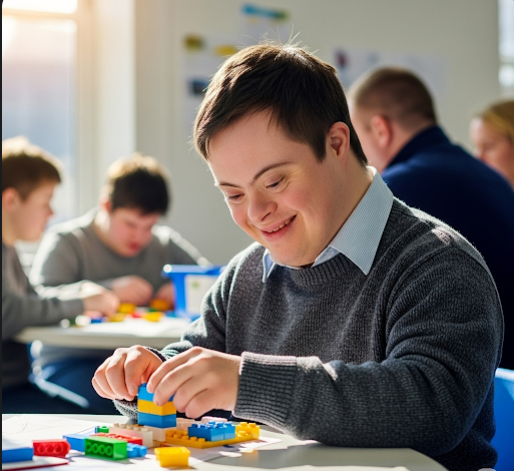Overview
Intellectual Disability (ID), previously referred to as mental retardation, is a developmental condition characterized by significant limitations in intellectual functioning and adaptive behaviors. These challenges affect an individual’s daily life, communication, social skills, and independent living. ID usually manifests before the age of 18 and varies widely in severity.
In Korea, awareness and support for people with intellectual disabilities have improved significantly over the years. The country offers a range of educational, medical, and social services designed to help individuals and families cope with and manage the condition effectively.
What is Intellectual Disability?
Intellectual Disability is defined by an IQ score approximately two standard deviations below the mean (IQ under 70), alongside deficits in adaptive functioning, which includes practical, social, and conceptual skills. It impacts learning ability, problem-solving, and social interactions. The severity ranges from mild to profound, influencing the level of support needed.
Symptoms
Symptoms vary depending on severity but commonly include:
- Delayed developmental milestones such as speech, walking, or self-care skills
- Difficulty understanding complex concepts or instructions
- Limited problem-solving abilities
- Challenges in social interaction and communication
- Difficulty adapting to new environments or routines
- Behavioral problems such as impulsivity or stubbornness in some cases
Causes
Intellectual Disability results from various genetic, environmental, and prenatal factors, including:
- Genetic disorders such as Down syndrome, Fragile X syndrome, or Rett syndrome
- Prenatal exposure to alcohol (fetal alcohol syndrome), drugs, or infections
- Birth complications leading to oxygen deprivation
- Severe malnutrition during early childhood
- Infections such as meningitis or encephalitis affecting brain development
- Traumatic brain injury
Risk Factors
Factors that increase the risk of intellectual disability include:
- Family history of intellectual or developmental disabilities
- Maternal health issues during pregnancy, including infections and malnutrition
- Exposure to toxins such as lead or alcohol during pregnancy
- Premature birth or low birth weight
- Inadequate prenatal and postnatal healthcare
Complications
Individuals with intellectual disability often face challenges such as:
- Difficulties in education and employment
- Social isolation and stigmatization
- Increased risk of mental health disorders like anxiety and depression
- Physical health problems due to limited self-care ability
- Dependence on caregivers throughout life
Prevention
While not all intellectual disabilities can be prevented, risks can be minimized by:
- Proper prenatal care including nutrition and avoidance of harmful substances
- Genetic counseling for families with known inherited conditions
- Early intervention programs to support development in at-risk infants
- Immunizations to prevent infections that can damage the brain
- Safe childbirth practices and newborn care
Treatment Options in Korea
Diagnosis
In Korea, diagnosis involves comprehensive developmental assessments, IQ testing, and evaluation of adaptive functioning by multidisciplinary teams including pediatricians, psychologists, and speech therapists. Genetic testing is increasingly available to identify underlying causes.
Educational and Therapeutic Support
- Korea offers inclusive education programs and special schools for children with intellectual disabilities.
- Speech therapy, occupational therapy, and behavioral therapy are common interventions.
- Early intervention services focus on improving communication, motor skills, and social interactions.
Medical Management
- Treatment of coexisting medical or psychiatric conditions such as epilepsy or ADHD.
- Regular health monitoring to address any physical complications.
Social Services and Support
- Korea has social welfare programs providing financial aid, vocational training, and supported living options for individuals with intellectual disabilities.
- Advocacy organizations promote awareness and inclusion.
Prognosis in Korea
With appropriate interventions and support, many individuals with mild to moderate intellectual disability can lead fulfilling lives with varying degrees of independence. Korea’s integrated healthcare and social services continue to evolve to better meet these needs.













